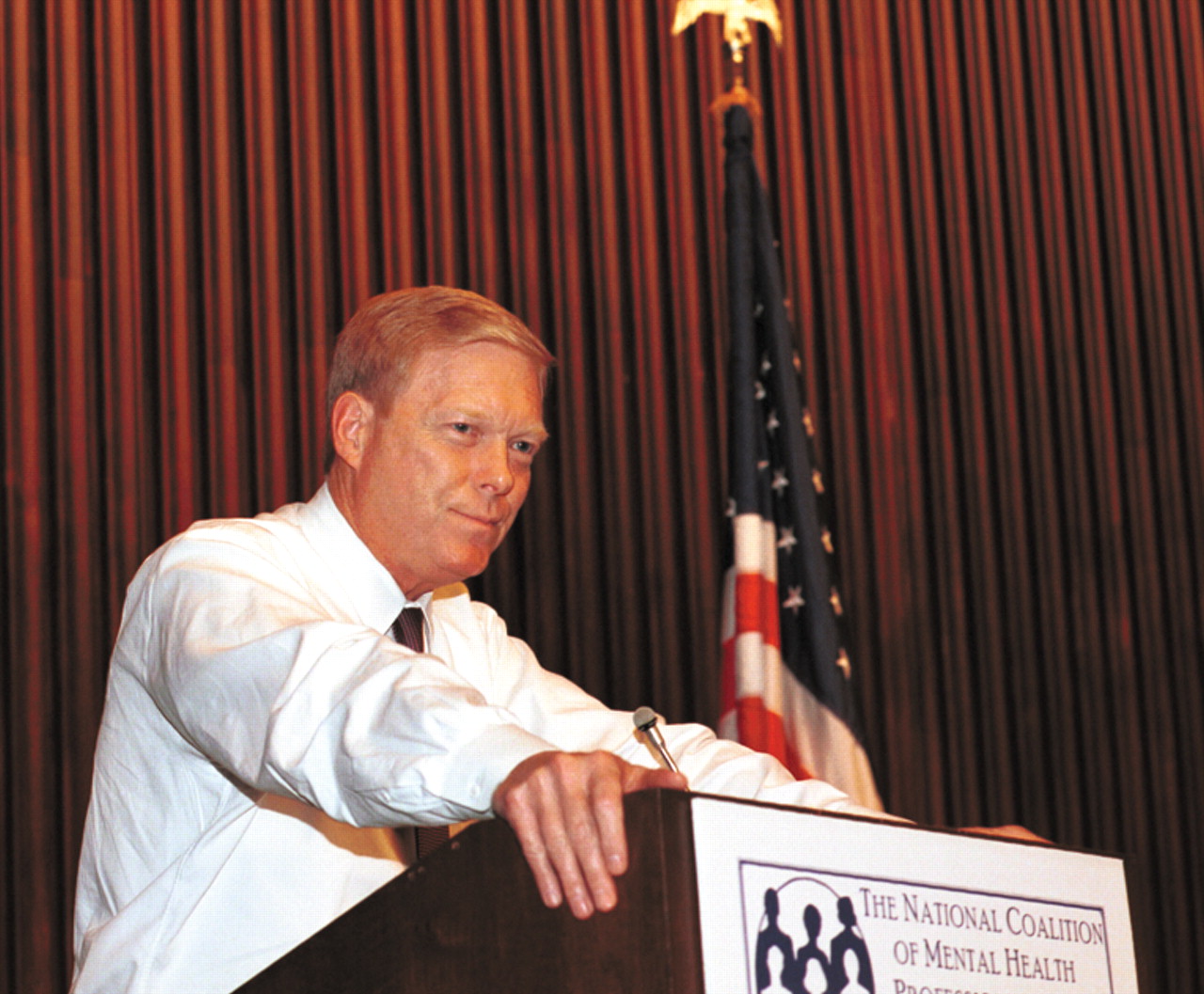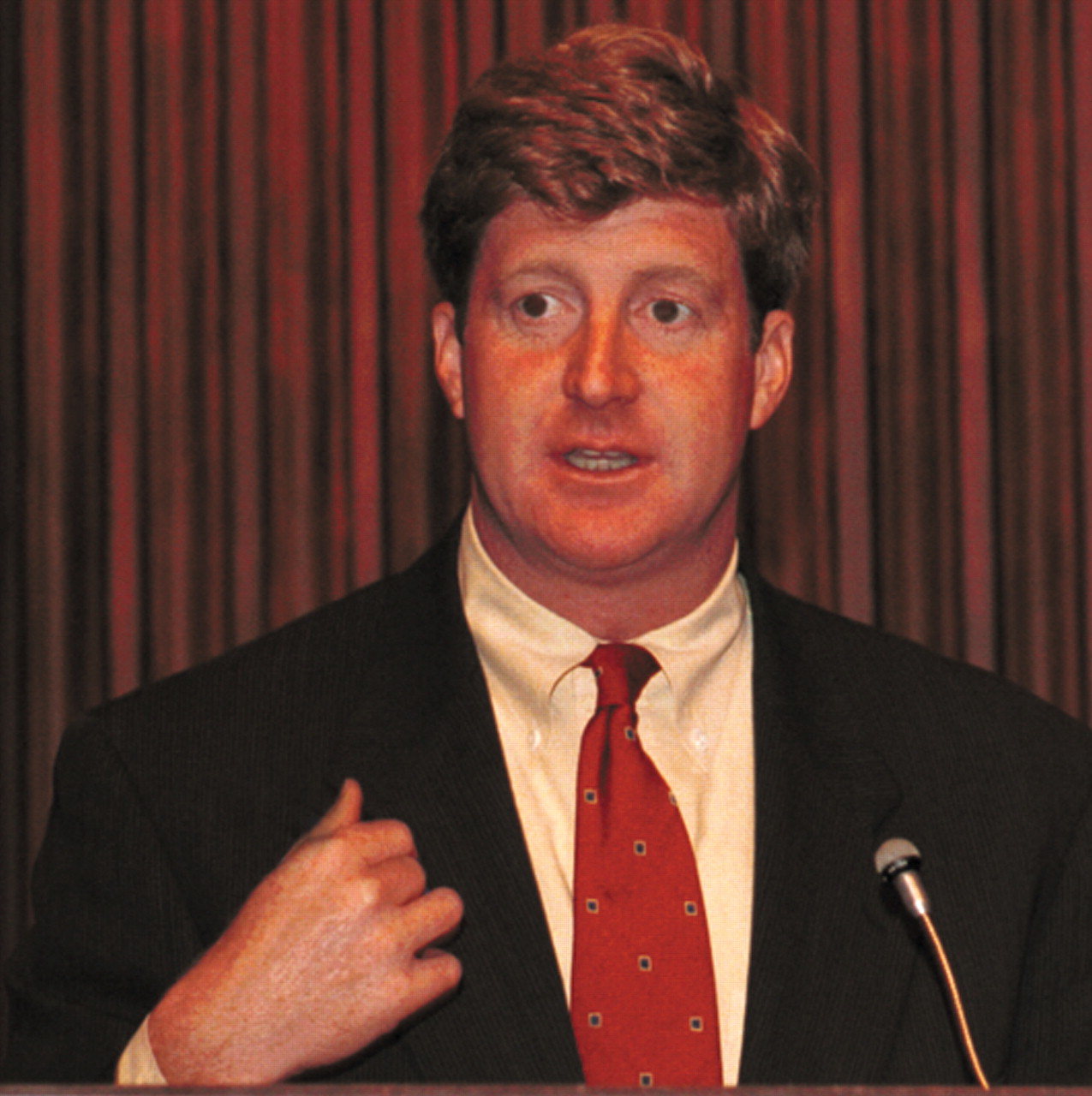“ Let me talk about mental health. One of the first things we need to figure out is how to never say mental health anymore—it’s health,” emphasized one of the country’s most influential politicians, Rep. Richard Gephardt (D-Mo.), minority leader of the House of Representatives.
Gephardt was the keynote speaker at the third national conference of the National Coalition of Mental Health Professionals and Consumers, an advocacy organization founded in 1992 that wants to see an end to managed care and its replacement with a system that puts the patient and quality care first.
Gephardt stated, “The problem is that nobody ever wants to talk about mental illness,” a situation he attributed to stigma. “It scares us, so we want to put it away, put it out of sight. . . . [Mental illness] is unpleasant. We fear it, and then we push it aside. You have just begun to fight—we have not passed the acts in Congress that we ought to pass with regard to health.”
The conference, held last month at New York Medical Center in New York, brought together mental health clinicians, consumers, and legislators to work on creating a new public consensus for mental health care.
Gephardt said that Americans have a long history of trying to regard people fairly and trying to change attitudes and discriminatory behavior. He pointed out the progress that has been made in the areas of civil and disability rights, and stated that people with mental illness now await that same kind of progress.
“Your efforts in reforming mental health care are just beginning,” he told those at the conference. “We can’t afford not to be active about health care.”
Rep. Patrick Kennedy (D-R.I.), another speaker at the conference, also referred to the lessons of the civil rights movement as a model for reform in mental health care. “As we all develop more effective treatments, learn how to prevent the onset of mental illness, and expand access to prevention services and treatments, we are like the civil rights activists a generation before—we open doors, and we widen the circles of opportunity,” he remarked.
Kennedy noted that only $5 of every $100 spent on illness research go toward mental illness. “When the World Health Organization ranks mental illness second only to cardiovascular disease in terms of disease burden, this American funding practice must be changed. Stigma exists even within the ivory towers,” he said.
The often troubled state of mental health care in the U.S. was also blamed for putting obstacles in the way of access to quality mental health care. Psychiatrist Robert Michels, M.D., a professor at Cornell University and an ethicist at the Hastings Center in Garrison, N.Y., emphasized that managed care has to assume considerable responsibility for this failure of the health care system, since it has failed to do what it promised in terms of access to care and funding. Its practices and lax monitoring of quality have also created ethical problems for practitioners, he noted.
“The unintended consequences of managed care are the intrusion into the doctor-patient relationship and the decreased access to care—the worst problem in mental health care,” he said. Consequently, clinicians face enormous challenges as they do their utmost to take good care of their own patients and make sure the world provides other patients access to good care.
Panelist Harold Eist, M.D., a past president of APA, made a point of bringing children’s mental health care into the discussion, noting that their needs are also being seriously overlooked, even by some who are trying to improve the health care system. “Without concerted action, the future of children’s mental health care will be lost behind us,” he remarked. Eist lamented that the U.S. has “not fulfilled President Kennedy’s plea to us years ago—‘Free our children from mental illness.’ ”
Journalist Robert O’Harrow Jr., has covered technology and privacy for the Washington Post for the last several years and has closely followed one aspect of health care that consumers care greatly about—medical privacy. He reminded the conference audience that consumers rank privacy of their medical information as their number one privacy concern—even above privacy of their financial and marketing information.
Just how important is privacy to consumers? In his interviews with consumers, O’Harrow said he has learned that a substantial number of patients even lie or change doctors to protect their privacy, and nowhere in health care is that more paramount than in the privacy for mental health records.
The voices of consumers were heard as well. Kathy Cronkite, author of On the Edge of Darkness: Conversations About Conquering Depression, emphasized that all Americans should be fortunate enough to have what she had when dealing with her depression—access, choices, and funding—so that those seeking treatment are never alone, neglected, or frightened.
Coalition President-elect Deborah Peel, M.D., a psychiatrist from Austin, Tex., stressed that patient choice, privacy, autonomy, and decision-making power are all critical for effective treatment of mental illnesses and addictive disorders to occur. “Treatment aimed only at symptom relief, the managed care model, is wholly inadequate,” she remarked.
Outgoing coalition President Karen Shore suggested that if mental health clinicians want to retain or regain decision-making authority for patient care they will have to accept a cost-control mechanism that “balances freedom with some responsibility for cost.” For mental health care office visits, she suggested, a model would be to have a fixed dollar insurance reimbursement for each visit, with a sliding copayment scale that would be negotiated by the patient and clinician. A government program would provide part of the copayment for the poor, disabled, and those with serious mental illnesses, Shore explained. The country also needs a system in which clinicians can base their fees on location, training, and experience, she added. Also, no insurance plan should ever prohibit a patient from paying completely out of pocket if he or she want to ensure absolute privacy, said Shore.
Shore is also director of National Rescue Health Care Day, a nationwide effort that organizes a day of managed care protests around the country once a year.
Gephardt reminded the conference attendees that, “We can change things. We can change things together. You cannot act or expect that people in the Congress can magically turn these things around—it takes a movement. We are all part of our own governance. Change requires citizen action.” ▪


